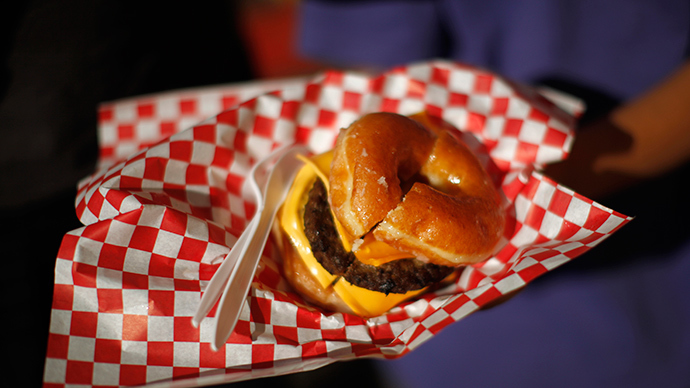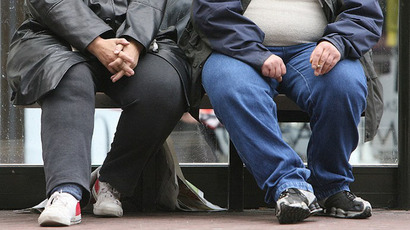Junk food gets encoded in DNA of future children, scientists discover

The next time you wolf down that Big Mac with large fries consider you may be affecting more than your own waistline. Scientists now say an unhealthy diet can be encoded into DNA, which is passed down to future generations.
By now, most people have heard various negative things about a
Western diet: it is too fatty, too salty and too sugary. It can
cause problems to the immune system, disturb the chemical makeup
of the stomach, and, perhaps the most obvious of all symptoms,
lead to obesity.
Now, a study from the National Institute of Allergy
and Infectious Diseases in Maryland has provided yet another
reason to drive past your favorite drive thru window: the
deleterious effects of a poor diet can leave a mark on the DNA,
passing along the genes to your offspring.
The harmful effects of an unhealthy diet can “actually
stretch across generations,” wrote Ian Myles, author of the
study, which appeared in Nutrition Journal.

Myles demonstrated that a mother’s eating habits “may potentially shape her child’s flavor preferences even before birth, potentially skewing their palette towards anything from vegetables to sugary sweets.” Passing along the proverbial sweet tooth could contribute to a child’s propensity to become obese at some point in his or her life.
“When the mother’s diet causes a harmful imbalance of her
bacteria, she passes this imbalance on to her child and thus
fails to present the ideal commensals for a proper immune
education during her child’s most critical developmental
window,” according to the study.
This developmental imbalance leaves the baby’s immune system
“poorly trained to fight off infections and encourages
autoimmune and allergic diseases.”
Myles cautioned that the father’s dietary choices in life also
play an important role in the health of offspring.
The paternal DNA “can also be inherited by the offspring and
could alter early development of the immune system [52],”
according to the study. “Epigenetic changes in DNA are, in
effect, cellular memory; these changes prevent dividing pancreas
cells from becoming cells of the kidney or any other organ.”

Myles concludes that only a radical change of lifestyle will stop
the transfer of stained DNA to future generations of babies. He
also warned on the apparent uselessness of commercial extracts as
a means of countering a poor diet.
“The benefits of dietary modification over supplementation is
furthered by evidence showing that dietary supplementation does
not increase longevity, indicating that…commercial interventions
such as tea or berry extracts are unlikely to counteract poor
dietary habits,” he advised.
Myles advised that people should eliminate sugar and fat in
processed form from their diets and move to fresh sources of
protein – and fat – such as fish and meat.















